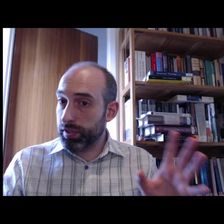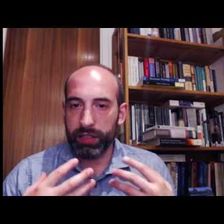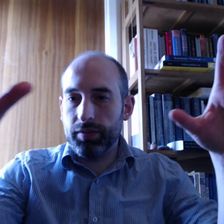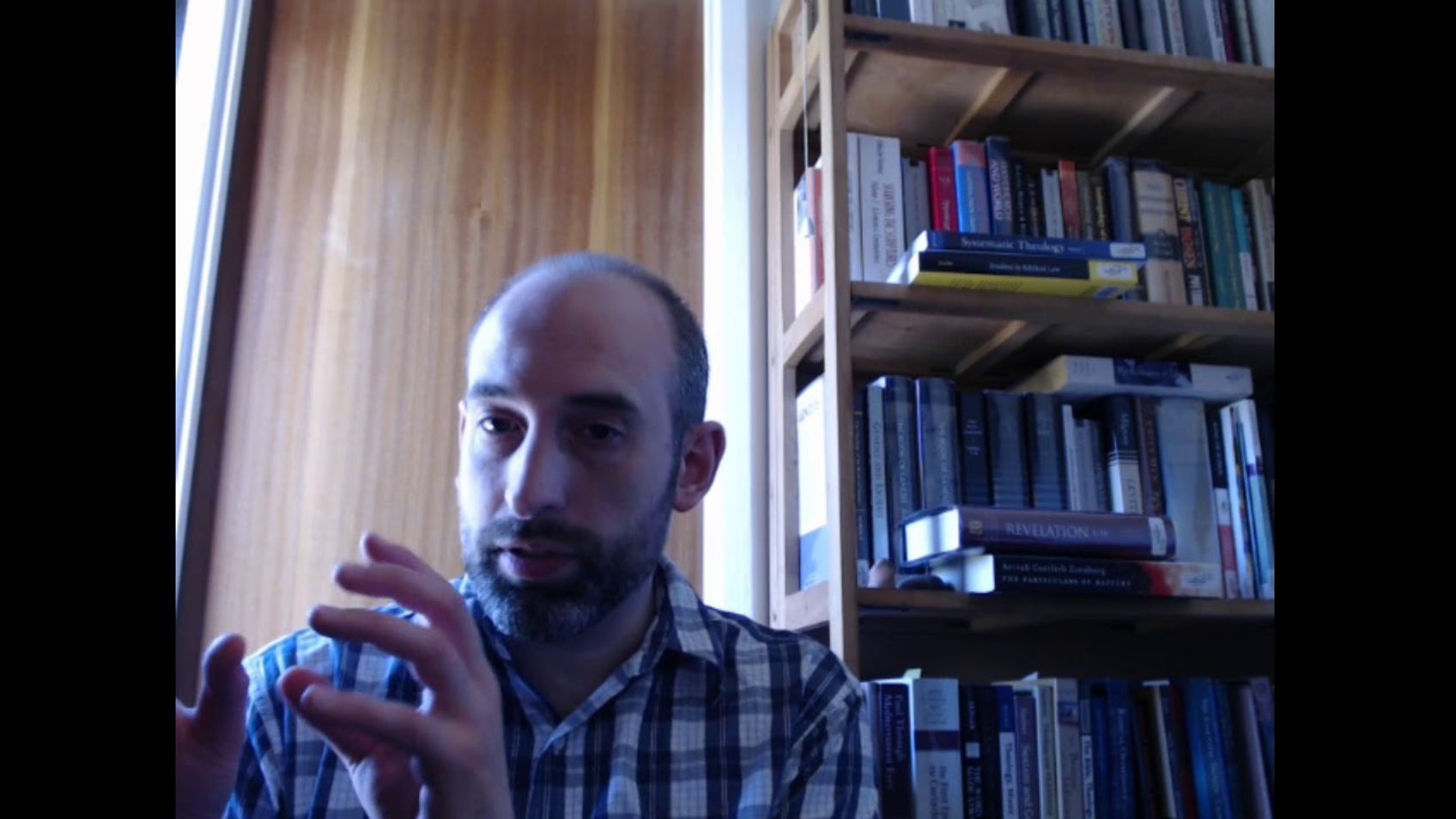Q&A#6 Trinity and Modalism
May 19, 2018

Alastair Roberts
Today's Question: I follow what you are saying about the error of saying that there are three 'centers of consciousness' in God's Triune nature, and how that would involve a denial of the unity and simplicity of the Divine Being and ultimately involve tritheism. However, isn't that different from affirming three subsistent consciousnesses, or three self-conscious Persons within the nature of God? Would not a denial of that involve the opposite error of modalism? I am concerned that in our right concern to flee from tritheism, we are not seeing an implicit embrace of modalism.
Leave your own questions in the comments, on my blog, or on my Curious Cat account.
More From Alastair Roberts

Q&A#7 Ruth the Moabitess and the Moabite Women of Nehemiah
Alastair Roberts
May 20, 2018
Today's Question: Having recently read both Ruth and Nehemiah, I was struck by the very different ways they relate to the recurring entanglement of Mo

Q&A#8 The Chronology of Genesis 38
Alastair Roberts
May 21, 2018
See this article for context: https://alastairadversaria.com/2006/12/08/the-judah-and-tamar-story-in-its-context/
Today's Question: The story of Juda

Looking for supporters for more regular videos!
Alastair Roberts
June 28, 2018
You can now support me on Patreon!
https://www.patreon.com/zugzwanged

Q&A#5 Exegesis, Authorial Intention, and Typology
Alastair Roberts
May 18, 2018
Today's Question: Is the task of exegesis limited to discovering the author's original intention, or can meaning somehow overflow intention? If so, in

Q&A#4 The Threefold Personhood of God
Alastair Roberts
May 17, 2018
Today's Question: You've challenged the idea that the Persons of the Trinity are three distinct 'centers of consciousness'. But, reading the gospels,

Q&A#3 A Biblical Theology of the Household
Alastair Roberts
May 16, 2018
Today's Question: Is there a biblical theology of the household you could outline for us in a YouTube video?
Leave your own questions in the comments
More on OpenTheo

The Making of the American Mind with Matthew Spalding
Life and Books and Everything
February 2, 2026
The United States is unique in how much attention it pays to its founding, its founders, and its founding documents. Arguably, the most famous and mos

The Heidelberg Catechism with R. Scott Clark
Life and Books and Everything
November 3, 2025
You may not think you need 1,000 pages on the Heidelberg Catechism, but you do! R. Scott Clark, professor at Westminster Seminary California, has writ

Is It a Sin to Feel Let Down by God?
#STRask
November 6, 2025
Questions about whether it’s a sin to feel let down by God and whether it would be easier to have a personal relationship with a rock than with a God

Is It Possible There’s a Being That’s Greater Than God?
#STRask
February 5, 2026
Questions about whether it’s possible there’s a being that’s greater than God and that’s outside of God’s comprehension and omniscience, and how to ex

How Would You Convince Someone That Evil Exists?
#STRask
November 17, 2025
Questions about how to convince someone that evil exists, whether Charlie Kirk’s murder was part of God’s plan, whether that would mean the murderer d

How Could One Person Trust Another Person on the Topic of God?
#STRask
March 5, 2026
Questions about how one person could trust another person on the topic of God, how STR obtained information about God that others haven’t obtained, an

Does Open-Mindedness Require Studying Other Religions Before Becoming a Christian?
#STRask
February 9, 2026
Questions about the claim that if Christians really want to be open-minded, they need to read and study other religions before committing to Christian

Sense, Sensibility, and Adam Smith with Jan Van Vliet
Life and Books and Everything
February 16, 2026
This year is a special anniversary for the United States as Americans celebrate 250 years of independence. But 1776 was an important year in more ways

Conservatism and Religious Freedom with John Wilsey
Life and Books and Everything
October 27, 2025
What is conservatism? And why does it go hand in hand with religious freedom? How should we think about the American experiment of ordered liberty? Ha

Does God Really Need a “Pound of Flesh” to Forgive Sins?
#STRask
January 12, 2026
Questions about how to answer the challenge that God doesn’t need a “pound of flesh” to forgive sins but can simply forgive, and whether the claim in

Does God Hear the Prayers of Non-Believers?
#STRask
February 26, 2026
Questions about whether or not God hears and answers the prayers of non-believers, and thoughts about a church sign that reads (as if from God), “Just

Why Are So Many Christians Condemning LGB People Just Because of How They Love?
#STRask
January 15, 2026
Questions about Christians condemning LGB people just because of how they love, how God can expect someone to be celibate when others are free to marr

Kingdom Priorities: Following the Teachings of Jesus
Knight & Rose Show
February 14, 2026
Wintery Knight and Desert Rose discuss Jesus' teachings from the Gospels, emphasizing truth, evidence, self-denial, and forgiveness. They explore pass

How Can I Explain Modesty to My Daughter?
#STRask
November 27, 2025
Questions about how to explain modesty to a nine-year-old in a way that won’t cause shame about her body, and when and how to tell a child about a pre

Why Is It Necessary to Believe Jesus Is God?
#STRask
February 19, 2026
Questions about why it’s necessary to believe Jesus is God, whether belief in the Trinity is required for salvation, and why one has to believe in the
